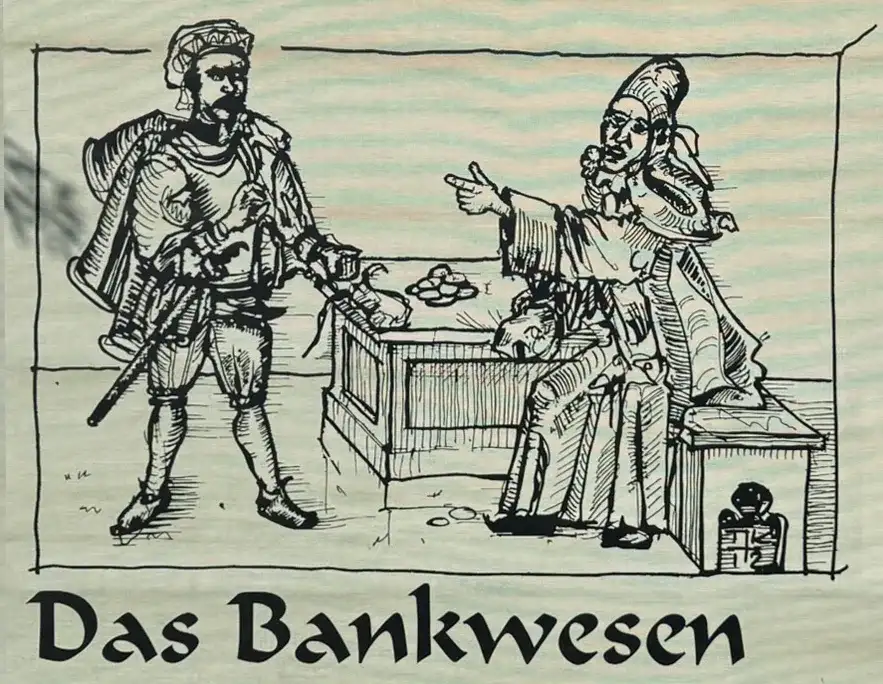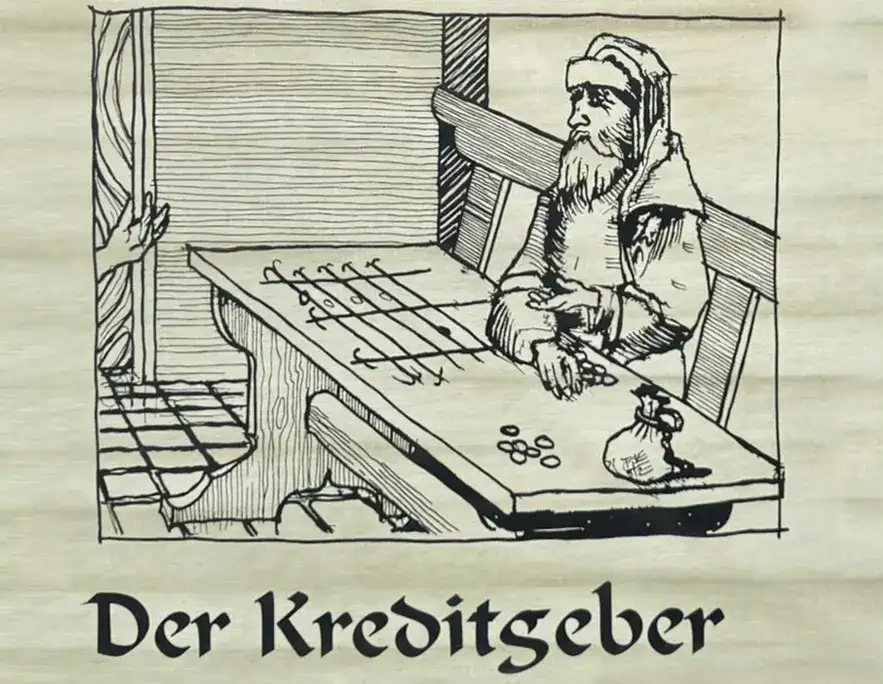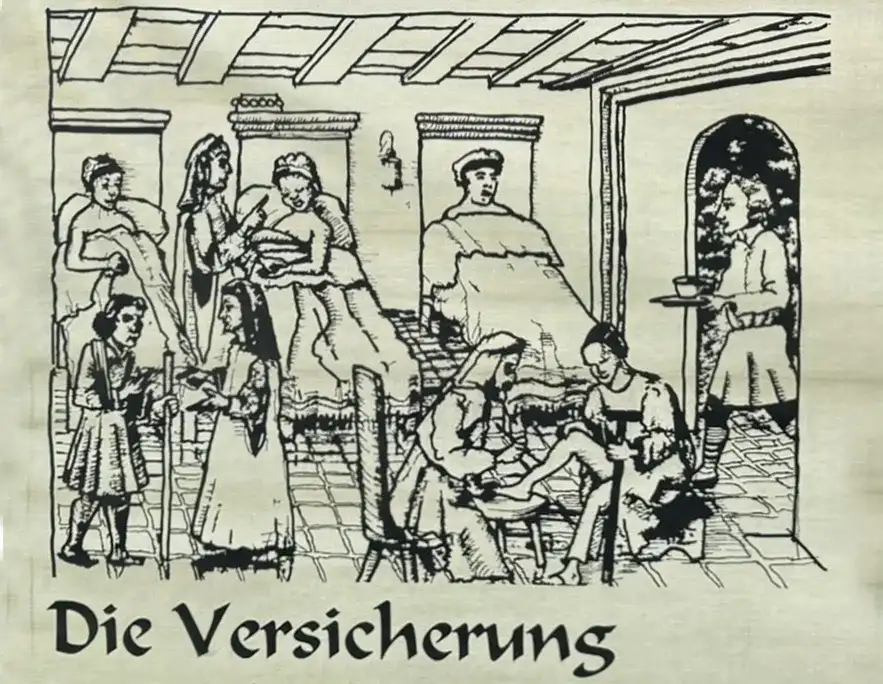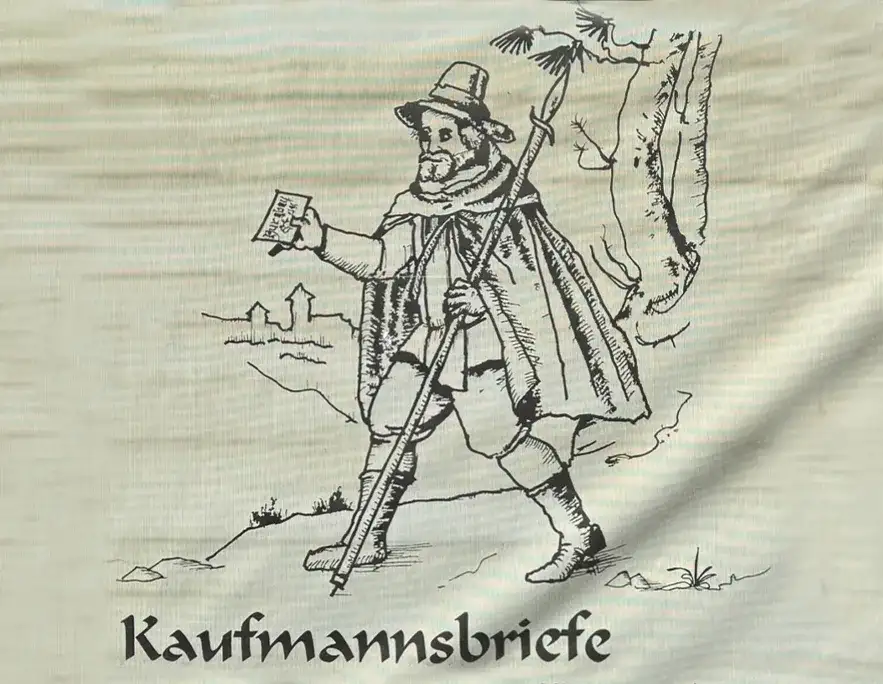Economy
Banking
The origins of banking lie with the money changers (bancherii, cambiatores). Their workplace was originally no more than a simple wooden bench set up by the roadside or in front of a house. At the time, the use of currency was typically limited to small regions governed by local lords or city authorities. It was only with the introduction of dominant currencies, such as the Friesacher Pfennig and later the Florentine Gold Florin, that more standardised monetary systems began to emerge.
Lenders
Lending was usually a side business carried out by merchants rather than by professional bankers. In Western Europe, moneylending was largely monopolised by Jews, Cahorsins (from Cahors, France), and Lombards. They were granted special privileges that allowed them to open banks or set up tables for conducting financial transactions.
Insurance
The precursors of modern insurance emerged at the end of the 13th century. In Italian port cities, sea traders jointly shared the risk of transporting ship cargo. In Iceland and northern Germany, mutual insurance societies existed in the form of fire, livestock, and injury guilds. Hospitals and charitable institutions served as early forms of social insurance.
Merchant’s Letters
For merchants of the late Middle Ages, reliable information about market conditions at their trading destinations was crucial. Written reports were produced by professional agents and sent to their clients. Before long, large trading companies began establishing their own communication networks. This marked the first step towards the modern newspaper.



